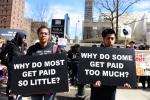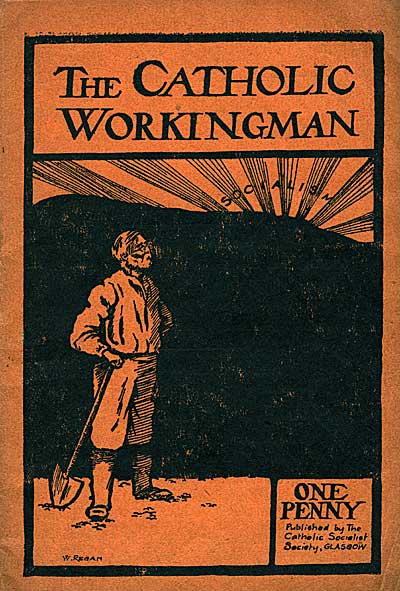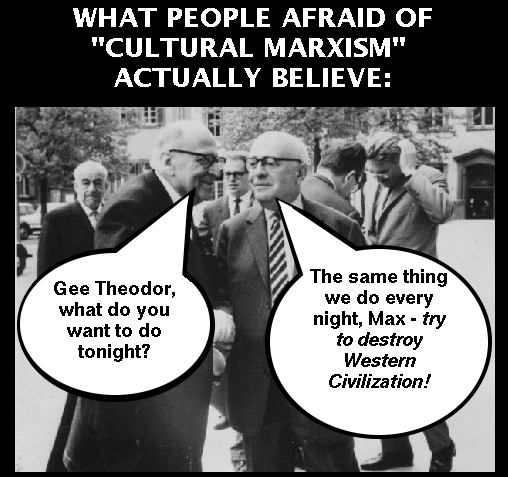Current IssueFrom the Editors
We wish our readers a Happy New Year, though we know that you take little joy in it, politically speaking. If we take no joy, we do sometimes find humor in President Donald J. Trump’s proclamations by Twitter, such as his claim that he is a “stable genius.” The current debate revolves around which of those two words is more ridiculous. Socialists, Democrats, the Working Class, and Our FutureWinter 2018
The question of the socialist left’s relationship to the Democratic Party has been a controversial
issue for decades, in truth, for as long as we have had the modern two-party system. At various
times the issue has been whether or not to break with the Democratic Party and construct a
socialist party or a labor party instead.
The Two Souls of Democratic Socialism
Fighting for the Soul of SocialismA Response to Kim Moody
Independent Politics Doesn’t Start With Walling Off the Democrats
I first met Kim Moody some 50 years ago. He was then organizing chapters of the California-based Peace and Freedom Party as an alternative to the Democratic war machine. If memory serves, he came to Park Slope, Brooklyn, then a predominantly Irish and Italian working-class neighborhood—not the gentrified picture from House Beautiful it has since morphed into—but also inhabited by a smattering of déclassé radicals. Moody wanted to interest a few of us in taking up the electoral mantle. Kim Moody Replies
Reply to Dornbush, Elliott-Negri, and LewisDornbush, Elliott-Negri, and Lewis are right that ideology is not enough and an analysis of “the actual, material terrain” is necessary. Simply repeating the well-known realities of the first-past-the-post U.S. electoral system that favors the two-party duality is not such an analysis. It’s old news. Not altogether wrong, but still yesterday’s political science. Trump and the Labor MovementA Look Beyond the Immediate Damage
We working people live in darkening times. When the Trump presidency ends in four years—if it does—we may no longer have an organized labor movement. As one of my colleagues, Ed Ott of the Murphy Institute, the City University of New York’s labor school, said to me, “We are at the beginning of the end of the U.S. labor movement based on a partnership with capital.” We are at the twilight of an era. Labor unions and collective bargaining stand to be swept away, and with them the institutions that have sheltered us in the workplace and provided us with a modicum of job security, living wages, health insurance, and pension benefits. The Environmental Justice Movement in South BaltimoreUnited Workers Take on the Multiple Crises of Capitalism
In an era when the federal government is increasingly dominated by fossil-fuel interests that limit regulation of oil rigs and pipelines, the environmental justice movement seems to have diminished significantly. Cuban Civil SocietyIts Present Panorama
A civil society emerges, mainly, due to citizens’ need to actively involve themselves in the public sphere in order to address processes that impact their daily lives and affect their interests. At the heart of civil society, various social actors, with sometimes remarkable differences, group themselves around common issues that affect or interest all of them. Therefore, civil society is plural, characterized by the spontaneous organization of citizens and based on logics of autonomy, solidarity, and representation of specific identities; it is aimed at addressing collective demands, exploring solutions to issues that affect a given community, and having an impact in the public sphere. Stalinism: The Complete Negation of Socialism
This is the last of three articles commemorating the Russian Revolution of 1917 and analyzing its fate under Stalin. The first part, “Glorious Harbinger of a New Society: The Bolshevik Revolution,” was published in New Politics, number 62, winter 2017, and the second part, “The Tragic Fate of Workers’ Russia,” in New Politics, number 63, summer 2017. The Third Camp, Socialism From Below, and the First Principle of Revolutionary Socialism
"The socialists consider it their principal, perhaps even their only, duty to promote the growth of this consciousness among the proletariat, which for short they call its class consciousness. The whole success of the socialist movement is measured for them in terms of the growth in class consciousness of the proletariat. Everything that helps this growth they see as useful to their cause; everything that slows it down as harmful." —George Plekhanov Remembering Joanne
Wholly Dedicated to Socialism From Below
The death of Joanne Landy last October is a profound loss to the socialist and internationalist movements.
Joanne died less than a day shy of her 76th birthday, and for her entire adult life, she retained a commitment to the fight for a more democratic and more humane world, and to the politics of socialism from below. Cartoon Cavalcade
In her award-winning book Red Rosa (2015), Kate Evans combined feminist biography, intellectual history, and appealing visuals to tell the remarkable story of Rosa Luxemburg. While much of the narrative focused on friendships, relationships, and personal struggles, Evans also conveyed a sense of Luxemburg as a theorist of capitalism, imperialism, and war. Comic Art in the Academy
The closing of the era when comic art specialists, not people with PhDs, wrote the outstanding and recognized works on individual artists and genres may have arrived as recently as only a few years ago. Careful biographies of artistic giants, household names (in their own eras, at least) or famed only within the field, Al Capp or Will Elder, have continued to be written by people who could rightly be called “fans”—if the title did not seem insulting. Rather than university presses, Fantagraphics or the comics series at Abrams would be a typical outlet. With each year that passes and with each swelling enrollment in a college course, the scene shifts. Exploitation and Modes of Production
The mode-of-production concept that Marx develops in Capital (although the idea is present earlier) is the essential methodological tool for understanding history, different societies, and the possibilities for social change. The Misrule of Global Capitalism
Social Inequality is not for the faint-hearted. It covers the major political-economic issues of our time, from the structural changes in the economics of capitalism, to class structure, the imperialist state, and the distortions of capitalist culture. The author, a veteran scholar-activist of the New Left generation who now lives in Costa Rica,1 ends with a plea for resistance to our oligarchic “hegemon” and suggests a series of tactics to help us on the road. Keynes, the Rabble, and Revolution
IN 1942 British economist John Maynard Keynes got an advance preview of Lord William Beveridge’s report, Social Insurance and Allied Services. In it, Beveridge proposed a comprehensive system of social security that ran the gamut from full employment to national health care so as to eliminate “Want, Disease, Ignorance, Squalor, and Idleness” from the United Kingdom. Socialism or Ecocide
Ecosocialism: A Radical Alternative to Capitalist Catastrophe, while excellent and valuable in its own right, isn’t quite the introduction to “green Marxism” that one might have expected. Michael Löwy is a veteran for decades of the democratic revolutionary left in France and a frequent contributor to New Politics. |
Blogs & On-Line FeaturesThe Merry Month of MayMitch Abidor’s New Oral History Explores the Lasting Legacy of the Revolt that Shook France in 1968
Where Are the Riots of Yesteryear? Why class still matters: a reply to Paul Mason
This article is a response to Paul Mason’s recent essay ‘Labour must become the party of people who want to change the world, not just Britain’, in which he argues that there can no longer be any privileged position for organised labour as an agent of socialist change. This reply will respond to that question specifically, leaving aside some other aspects of Mason’s essay, and argue that the working class remains the key strategic actor for overhauling capitalism. Nicaragua—Protest, Repression, NegotiationsWhat Happened to the Nicaraguan Revolution?
The upheaval in Nicaragua that lasted from April 18 to April 21 and the repression that reportedly left 63 dead, 15 missing and 160 injured by gunfire, have both subsided for the moment. The protests halted after President Daniel Ortega announced the cancellation of his proposed changes in the social security pension law. Photographers were among those beaten. Other human rights centers and the Jesuit University of Central America in Managua as well as Nicaraguan newspaper accounts and discussions with people in Managua confirm many of these deaths and injuries. Since April 22 Nicaraguans have participated in numerous marches, some raising the call for “Peace and Justice,” and many of the participants carrying placards calling upon President Ortega and his vice-president and wife Rosario Murillo to resign. On April 26 an enormous pilgrimage of tens of thousands called for peace and negotiation organized by the Catholic Church.
Some Reflections on #MeToo
Are We on the Eve of Another Nicaraguan Revolution?Nicaraguan Government Kills 24 – Students, Farmers Call for National Strikes
The government of former revolutionary and Nicaraguan president Daniel Ortega has in the last few days killed at least 24 protestors who were demonstrating against sudden and drastic alterations in a new pension law, changes that would have adversely affected the incomes and lives of tens of thousands. Some 200 were arrested and 20 are missing, according to the National Human Rights Commission. Other protestors, many of them university students, were beaten by the police or by goons armed with pipes sent by President Ortega’s party, the Sandinista Front for the Liberation of Nicaragua (FSLN).
Lou Andreas-Salomé vs. The PatriarchyFilm Review
Lou Andreas-Salomé, The Audacity to Be Free Directed by Cordula Kablitz-Post, 1 hr. 53 min Cinema Libre Studios, 2016 This biopic is not subtle. From its opening scene featuring a pyre of books and a frenzied crowd cheering as a manic speaker justifies the burning of Marx, Trotsky, Freud and “everything that is not German” followed by a romp through Lou Andreas-Salomé’s prodigiously intellectual life and her last days as a target of the Nazis, the film is as much about the pain of choosing a vaporous freedom as it is the flailing pursuit of fulfillment by a self-assertive, iconic woman. The roots of Venezuela’s crisis and the lessons for the left
Collapsing wages, food shortages, and rampant inflation have led to growing hunger and desperation in Venezuela. Recent videos illustrate just how desperate the situation has become, as hungry people chase down livestock in the fields to butcher it for its meat, or skin dogs and cats on the streets of Caracas. Violent food-related protests have erupted in various cities around the country, and the looting of grocery stores is becoming more and more widespread. Meanwhile, thousands of Venezuelans are flooding across the borders into neighboring countries. Anatomy of a Flop
Looks to me that the ANSWER-IAC-UNAC rallies this weekend were a huge flop. The biggest was in NYC on April 15. The only article I could find that mentioned it was on a Chinese news service that said there was a protest of "hundreds." I saw one video of what I think was the whole crowd and it looked like 400 people. Hell, in 2003 we had hundreds of thousands.
Marx This TimeOn the return of a Marxist political economy
The path taken by political life around the globe since the end of the Cold War appears as if designed to crush the liberal optimism with which this period excitedly began. The rise of Islamic fundamentalism manifestly disturbs a concept of peace understood in terms of sovereign states. Economic disquiet persists nearly a decade after a financial crisis highlighted the epochal decline that had occurred in the world economy after the post-Second World War growth boom. American populism has seized the allegiance of vast masses, led to a spontaneous storming of Wall Street, emboldened proud neo-Nazis to take to the streets, and wracked the nerves of liberals at home and abroad as it saw Donald Trump descend an ill-advisedly gaudy escalator to the White House. Intersectionality and DivergenceMy Life in the LGBT and Labor Movements
Looking back on nearly 25 years of involvement in the LGBT movement, and 45+ years in the labor movement, I am struck by the way those paths have crossed, intertwined and separated over the long term. This arc took me into unexpected territory, where queer identities, once deeply hidden and guarded, have achieved wide mainstream acceptance and support, while organized labor, once powerful and self-confident, now struggles to maintain its existence. Christian Socialism-From-Above
Massacre of Peaceful Gaza Demonstrators: An Israeli Crime Against Humanity
The Red State WalkoutsAn analysis - and homage - to the work of teachers
Postmodern Conservatism and Capitalism
Conservatives today have been deeply critical of what is often called postmodernism. They have associated it with identity politics, political correctness, social justice warriors, relativistic “cultural Marxism” and a host of other evils. For some conservatives, post-modernism is signifies everything that is wrong with contemporary society. University of Toronto Professor Jordan Peterson has characterized it as “dangerous” and “radical” and dismissed important authors like Derrida as “charlatans.” The National Security Council has claimed that “postmodern cultural Marxism” (whatever that means) mobilizes opposition to Donald Trump. And right wing commentator Ben Shapiro has characterized Barack Obama the first “postmodern” President. A Working Class Mayor Is Something To Be

Review: Winning Richmond: How a Progressive Alliance Won City Hall by Gayle McLaughlin. Hardball Press, 2018. Well before the Trump era, U.S. presidents from both major parties failed to address urban problems or made them worse. Congress, state legislatures, and governors weren't much better. The job of fighting poverty, inequality, and environmental degradation shifted to the municipal level, where activist mayors have tried to mobilize the limited resources of local government on behalf of neglected constituents and causes. |

 Some New Politics readers will recognize the title of this article as a paraphrase of Hal Draper’s “Two Souls of Socialism,” which appeared in New Politics in 1966. The first version, however, appeared in the socialist student magazine Anvil in 1960, just as a new generation of youthful activists was emerging, inspired to a large extent by the civil rights movement.
Some New Politics readers will recognize the title of this article as a paraphrase of Hal Draper’s “Two Souls of Socialism,” which appeared in New Politics in 1966. The first version, however, appeared in the socialist student magazine Anvil in 1960, just as a new generation of youthful activists was emerging, inspired to a large extent by the civil rights movement. After a huge bump in membership thanks to Bernie Sanders, and an even bigger one thanks to Donald Trump, the DSA continues to grow. Since its national convention in August, membership has increased from 25,000 to 30,000. We have known since 2011 that millennials have a more positive association with the word “socialism” than the word “capitalism”;1 Sanders gave this demographic shift from the cold war era a political expression, and DSA has given it an organizational expression. Now thousands on the left are scrambling to answer the question, “What do we do with this newfound energy?”
After a huge bump in membership thanks to Bernie Sanders, and an even bigger one thanks to Donald Trump, the DSA continues to grow. Since its national convention in August, membership has increased from 25,000 to 30,000. We have known since 2011 that millennials have a more positive association with the word “socialism” than the word “capitalism”;1 Sanders gave this demographic shift from the cold war era a political expression, and DSA has given it an organizational expression. Now thousands on the left are scrambling to answer the question, “What do we do with this newfound energy?”




 In June 2017, the New Politics editorial board organized an event to honor Joanne Landy. She had been diagnosed almost a year before with stage 4 lung cancer. We all knew her prognosis was very grim and thought it would be a fine thing to show Joanne, while she was still with us, how much she was loved and admired by so many, many people.
In June 2017, the New Politics editorial board organized an event to honor Joanne Landy. She had been diagnosed almost a year before with stage 4 lung cancer. We all knew her prognosis was very grim and thought it would be a fine thing to show Joanne, while she was still with us, how much she was loved and admired by so many, many people.




 #MeToo has seen countless people coming forward with experiences of sexual violence and harassment and has become central to conversations around gendered violence.
#MeToo has seen countless people coming forward with experiences of sexual violence and harassment and has become central to conversations around gendered violence.





 On March 19th, 2018, Gov. Phil Bryant of Mississippi signed into law the earliest abortion ban in the United States, restricting abortions after 15 weeks in the entire state. The day after, the Supreme Court housed debate on the legality of a California law regulating speech at anti-abortion crisis pregnancy centers, which required that they present information about affordable abortion, contraception, and prenatal care, and to display signs saying that they are not a licensed medical clinic, in cases where they are not. This has re-ignited debate over the appropriate stance for the left to take on abortion, and whether there is space on the left for anti-abortion views.
On March 19th, 2018, Gov. Phil Bryant of Mississippi signed into law the earliest abortion ban in the United States, restricting abortions after 15 weeks in the entire state. The day after, the Supreme Court housed debate on the legality of a California law regulating speech at anti-abortion crisis pregnancy centers, which required that they present information about affordable abortion, contraception, and prenatal care, and to display signs saying that they are not a licensed medical clinic, in cases where they are not. This has re-ignited debate over the appropriate stance for the left to take on abortion, and whether there is space on the left for anti-abortion views. On March 30, over 30,000 Palestinians – children, women, and men – gathered near the Gaza border with Israel. As they assembled several hundred yards away from the border fence, 18 peaceful demonstrators were gunned down by Israeli military snipers using live ammunition, with over a thousand reportedly suffering bullet wounds. Many of the demonstrators had come as whole families, with picnic supplies.
On March 30, over 30,000 Palestinians – children, women, and men – gathered near the Gaza border with Israel. As they assembled several hundred yards away from the border fence, 18 peaceful demonstrators were gunned down by Israeli military snipers using live ammunition, with over a thousand reportedly suffering bullet wounds. Many of the demonstrators had come as whole families, with picnic supplies. When I write for New Politics, I tag my blogs with key words. I wonder how many other Left publications include "teachers unions" under "labor" or include "education" as a separate topic and run critical analyses—as we do?
When I write for New Politics, I tag my blogs with key words. I wonder how many other Left publications include "teachers unions" under "labor" or include "education" as a separate topic and run critical analyses—as we do?





 This essay was originally a talk at the conference held at the New School for Social Research on April 21-22, 2016.
This essay was originally a talk at the conference held at the New School for Social Research on April 21-22, 2016.